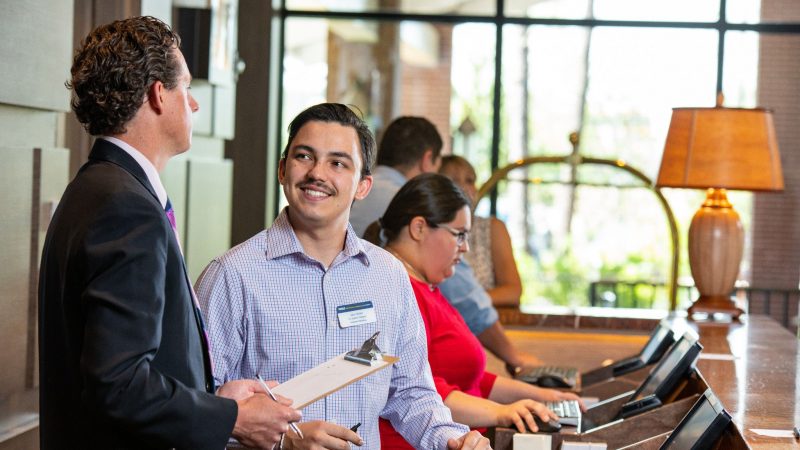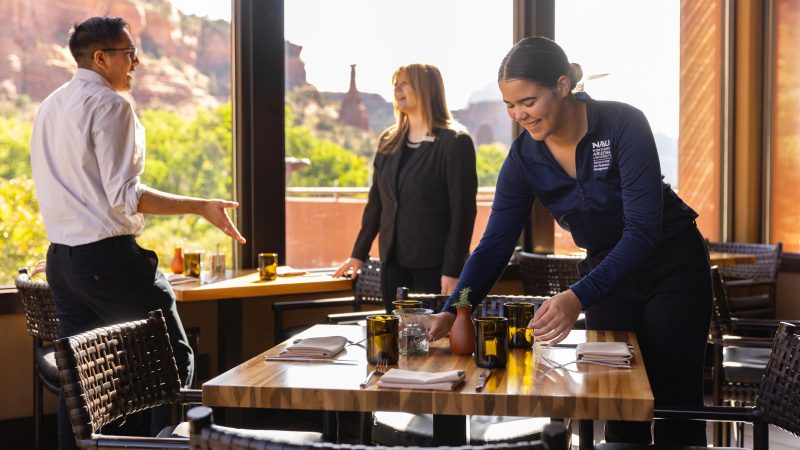NAU’s School of Hotel and Restaurant Management prepares socially responsible, culturally-aware students for success in an ever-changing, global hospitality industry through rigorous academic programs informed by faculty research and meaningful industry engagement.



Hospitality starts here
The School of Hotel and Restaurant Management in The W. A. Franke College of Business, prepares you with the skills that future employers will demand. These skills include flexibility, adaptability, and resiliency—and most importantly, the ability to continually evolve in a an ever-changing work environment that is led by technology and innovation in the industry.
Our in-house workshops and networking events—such as our spotlight visits and career fair—are designed to connect you with employers in the field from your first moments on campus. Throughout the year, we host events, including the annual Casino Night and Golf Tournament, in which you will work alongside alumni and industry partners to raise money for HRM scholarships, as well as to increase your opportunities for networking and industry engagement. You may also choose to participate in our study abroad program in the summer, a three-week program titled Discovering Gastronomy, in which students travel to France to study cuisine and culture.

Our commitment to student success
-
Mission and vision
The School of Hotel and Restaurant Management’s mission statement. -
Faculty and staff
The HRM faculty and staff are ready to support students at every step. -
Professional placement and student retention
Institutional data for retention, graduation, and job placement. -
Accreditation Commission for Programs in Hospitality Administration (ACPHA)
We are accredited by the ACPHA. -
NAU catalog
Hospitality Administration courses offered at NAU. -
Academic policies
NAU’s Academic Policy as posted in course catalog.
